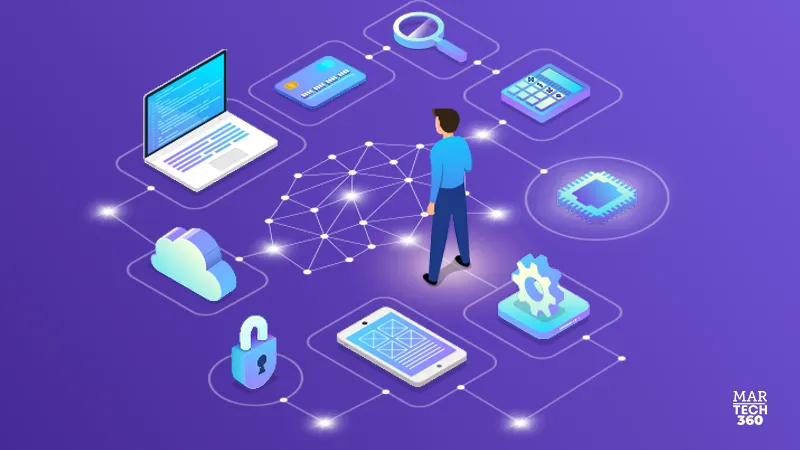A decade ago, AI was a buzzword discussed by experts at tech conferences. Now, we can see it changing the game for almost every industry. AI drives significant transformations and innovations across various sectors, including SaaS (Software-as-a-Service).
AI, in conjunction with SaaS, has a promising future. It has the potential to change forever how we consume digital content, browse the web, do business, work, and communicate. But even now, signs of AI adoption are evident. This technology already transforms the booming SaaS landscape, adding extra personalization, automation, security, and efficiency layers across diverse industries. However, it’s important to consider the potential challenges of implementing AI in SaaS, and ensure that companies are prepared to overcome these obstacles.
As we step into the new era of AI-powered SaaS apps, we witness AI’s significant contributions to the success of digital companies. Beyond automating mundane tasks, AI becomes a powerful engine propelling businesses to new heights of performance and scalability. This is a promising future for industries across the board, offering invaluable insights and opportunities for growth.
What’s The Role Of AI In Improving SaaS Products?
-
Personalization at scale
Incorporating AI into SaaS helps transform raw customer data into categorized insights, allowing businesses to simultaneously personalize user experiences for many customers. AI-powered churn prediction models detect customers at risk of leaving so companies can proactively retain them. Furthermore, AI optimizes conversion funnels by identifying where users drop off and finding opportunities to improve key metrics.
By analyzing user data, AI can determine which features are most and least used, helping companies decide what to improve, optimize, or remove. AI algorithms, implemented by experienced vendors like Geomotiv, also segment users based on their behavior and attributes, allowing for tailored experiences that resonate with different user groups. This level of personalization ensures that thousands of customers receive highly personalized experiences, making each one feel uniquely valued.
-
Predictive analytics
AI has yet to match the full spectrum of human cognitive abilities. However, today’s advanced neural networks can learn, make intricate decisions, and engage in sophisticated reasoning. These capabilities enable SaaS companies to analyze historical data to make accurate forecasts, prevent problems before they arise, and provide proactive customer support.
AI offers invaluable insights for SaaS companies seeking to optimize operations and enhance customer experiences. It digs into Big Data to recognize patterns, guiding businesses in resource allocation and crafting efficient marketing strategies. Predictive analytics helps identify customers most likely to upgrade plans or buy additional products. These insights empower tailored messaging, driving account expansion within targeted audience segments.
Beyond forecasting sales trends and optimizing marketing strategies, AI is instrumental in predicting potential system outages. By analyzing data patterns and historical performance, AI can notify SaaS platform developers when system failures might occur. SaaS companies can take measures to prevent or mitigate such disruptions.
-
Сustomer service and relationships
The interplay between AI and SaaS helps companies support their customers and build thriving relationships. Businesses can use AI and ML to streamline client interactions, address frequently asked inquiries, and suppotwith AI-powered chatbots and virtual assistants. Additionally, implementing natural language processing tools allows for swift categorization of support tickets by topic, streamlining operations.
These tactics enhance the efficiency of the customer service department and enable human representatives to focus on tackling more complex issues. By offering round-the-clock support, AI-powered chatbots or virtual assistants lighten the workload of customer service agents while increasing overall client satisfaction levels.

-
Security monitoring
The fusion of AI into SaaS helps protect software against malicious activities and strengthen the app’s defense mechanisms. AI and ML algorithms constantly track user behavior and network traffic to identify abnormal activities. Additionally, they provide round-the-clock monitoring of software systems and cloud storage, automating vulnerability mitigation.
AI also works tirelessly to implement robust data protection policies. SaaS companies generally store vast amounts of sensitive user data in the cloud, and the cost of potential data breaches can cause severe reputational damage. AI helps safeguard critical business and user information by integrating algorithms and ML models. They assist in establishing robust security policies, which guide access control and user authentication processes.
-
Advanced automation
As a SaaS company, you can automate repetitive tasks that span sales, marketing, customer support, accounting, and other workflows. Even if you handle complex processes or deal with enormous amounts of data, AI is up to the challenge. This is what we refer to as ‘advanced automation’ in the context of AI and SaaS. As a result, manual interventions to time-consuming day-to-day tasks have become a thing of the past. Instead, a SaaS company can maximize resource utilization and redirect employees’ attention to more critical tasks like expansion to new countries or customer segments.
The shift to AI-powered automation also results in cost optimization. Operational expenses decline when AI takes care of simple tasks. It saves SaaS companies from the burden of hiring extra employees when the scope of tasks grows. Small and medium-sized companies may have shrinking budgets, which limits the ability to source, hire, and onboard a large workforce to manage their SaaS applications.
Which Industries Benefit from AI-Powered SaaS Apps?
-
HRM (Human Resource Management)
AI-powered talent sourcing, hiring, and management SaaS solutions provide an excellent opportunity for HR teams to streamline and improve the quality of:
-talent acquisition;
-employee onboarding;
-workforce retention;
-HR assistance, etc.
-
Digital advertising
Forward-thinking AdTech companies integrate their platforms with AI tools to derive insights from tons of data generated in the programmatic flow. AI-powered SaaS solutions help optimize revenue and improve the outcomes of ad campaigns through:
-analysis of high- and low-performing ad slots and creatives;
-identifying user behavior patterns;
-detecting and predicting trends;
-understanding user preferences and purchase behavior;
-assessing campaign efficiency, etc.
-
EdTech & eLearning
When combined, AI and SaaS-based eLearning tools and platforms help deliver personalized learning paths, gamified user experiences, and improved educational outcomes. SaaS platforms can also delight their users with flawless UX through the following AI-enabled features:
-adaptive learning that meets individual needs;
-real-time feedback from teachers;
-automated grading and assessment of assignments;
-analytical insights into students’ progress, etc.
-
Retail
Retailers embrace the AI powerhouse differently – from personalizing shopping experiences to accurate demand forecasting. Other application areas of AI in Retail include:
-automated inventory management;
-supply chain optimization;
-AI shelf management;
-targeted marketing;
-prevention of fraudulent activities, etc.
-
Finance
The financial industry gains more profound insights into markets and customer interactions thanks to AI adoption into SaaS offerings. AI in Finance can impact different areas:
-detecting anomalies like insecure patent gateways;
-high-precision predictive modeling;
-AI-driven robo-advisors for investors;
-automated trading;
-implementing regulatory compliance processes.
Conclusion
AI algorithms continuously evolve, leading to an ever-expanding range of applications for these technologies. As they become more sophisticated, SaaS companies can improve the quality of their services and unlock new levels of personalization, automation, security, and efficiency.
AI features are taking the business world by storm, from automating routine tasks like inventory management to driving intelligent decision-making using predictive modeling and data analysis. The future of AI-powered SaaS is bright, with endless possibilities for growth and improvement across various industries.


Comments are closed.